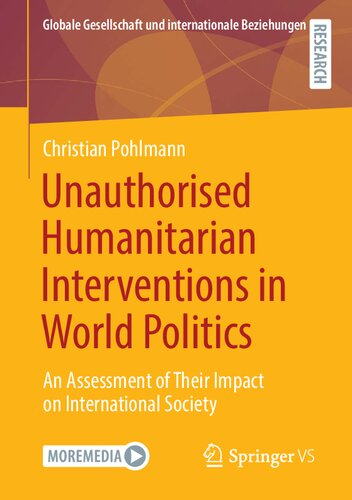

Most ebook files are in PDF format, so you can easily read them using various software such as Foxit Reader or directly on the Google Chrome browser.
Some ebook files are released by publishers in other formats such as .awz, .mobi, .epub, .fb2, etc. You may need to install specific software to read these formats on mobile/PC, such as Calibre.
Please read the tutorial at this link: https://ebookbell.com/faq
We offer FREE conversion to the popular formats you request; however, this may take some time. Therefore, right after payment, please email us, and we will try to provide the service as quickly as possible.
For some exceptional file formats or broken links (if any), please refrain from opening any disputes. Instead, email us first, and we will try to assist within a maximum of 6 hours.
EbookBell Team

5.0
28 reviewsThe question if states should intervene in massive humanitarian emergencies without a legal right to do so, is still object of an important debate in the theory and practice of international relations. This situation has not changed with the emergence of the ‘Responsibility to Protect’ norm, which stopped short of a right to intervene without a Security Council authorisation. The book assesses the impact of such unauthorised humanitarian interventions on international society and regions; it is written in the context of the English School of International Relations. Based on empirical studies the author argues that they can be progressive-constructive for international order, if conducted with explicit legitimacy, integrity, and great power participation. The argument is based on the analysis of six cases conducted between 1946 and 2005. Specific consideration is given to the cases of Liberia (1990) and Kosovo (1999). In sum, the book contributes to the solidarism-pluralism debate and the discourse on humanitarian interventions.